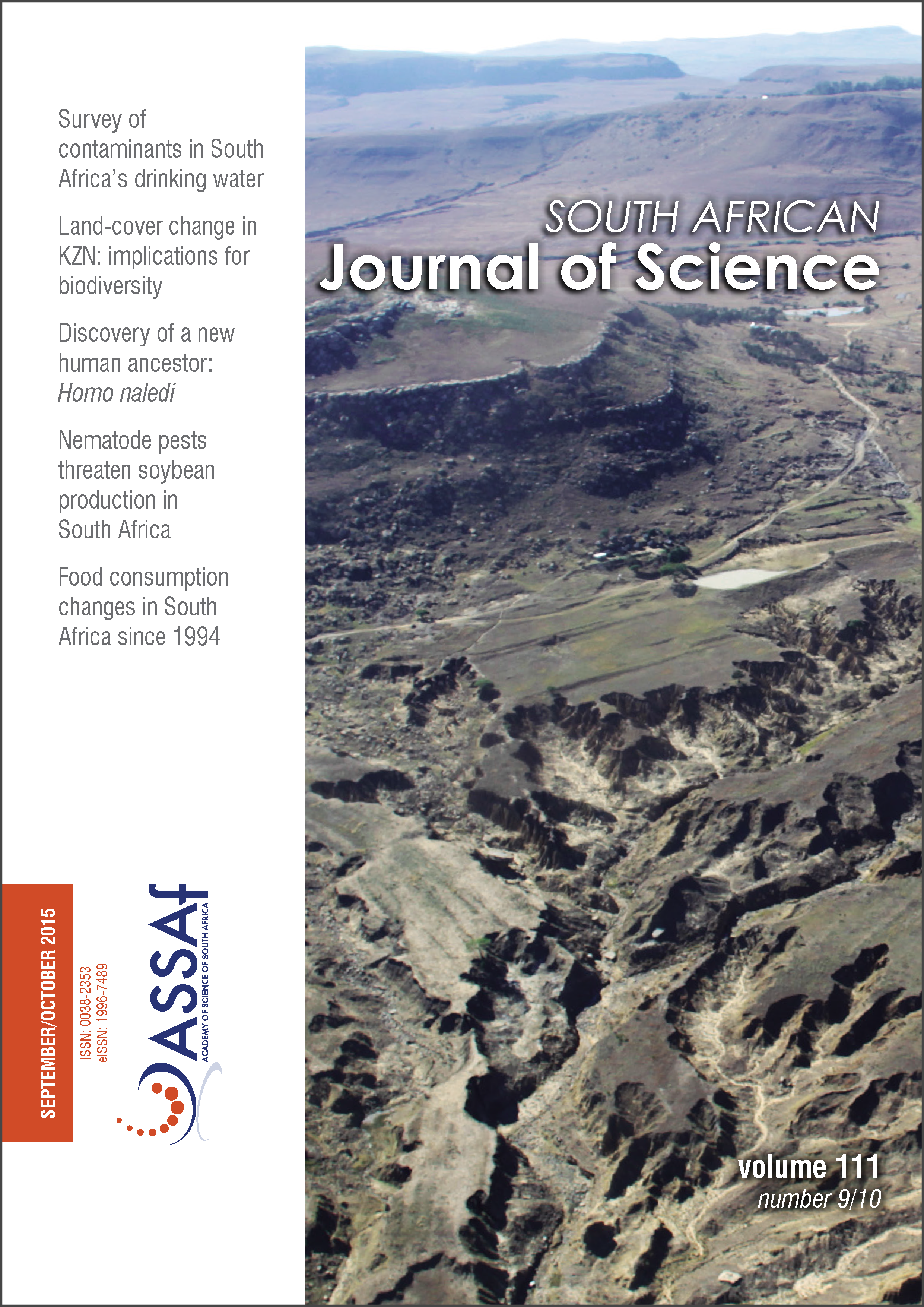Review of the stability of biodiesel produced from less common vegetable oils of African origin
DOI:
https://doi.org/10.17159/sajs.2015/20140434Keywords:
oxidation stability, thermal stability, storage stability, antioxidants, fuel propertiesAbstract
The stability of biodiesel is dependent on storage conditions such as contact with ambient air and metals, exposure to sunlight and high temperature conditions which accelerate oxidation reactions. In addition, biodiesels are more susceptible to degradation when compared to fossil diesel because of the presence of unsaturated fatty acid chains which are prone to oxidation. The stability of biodiesel is categorised according to oxidation stability, storage stability and thermal stability. Oxidation instability can led to the formation of oxidation products such as aldehydes, alcohols, shorter chain carboxylic acids, insolubles, gums and sediments in the biodiesel. Thermal instability is concerned with the increased rate of oxidation at higher temperature, which in turn increases the weight of oil and fat due to the formation of insolubles. Storage stability is the ability of liquid fuel to resist change to its physical and chemical characteristics brought about by its interaction with its storage environment, such as contamination with metals. These fuel instabilities give rise to the formation of undesirable substances in biodiesel beyond acceptable limits as per global biodiesel standards such as those of the American Society for Testing and Materials (ASTM D6751) and European Standards (EN 14214). When such fuel is used in the engine, it impairs engine performance through fuel filter plugging, injector fouling, and deposit formation in the engine combustion chamber and various components of the fuel system. We review the stability of biodiesel made from less common vegetable oils of African origin and synthetic antioxidants used in improving the stability of produced biodiesels.
Published
Issue
Section
License

All articles are published under a Creative Commons Attribution 4.0 International Licence
Copyright is retained by the authors. Readers are welcome to reproduce, share and adapt the content without permission provided the source is attributed.
Disclaimer: The publisher and editors accept no responsibility for statements made by the authors
How to Cite
- Abstract 463
- PDF 646
- EPUB 208
- XML 218












.png)